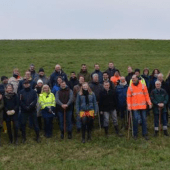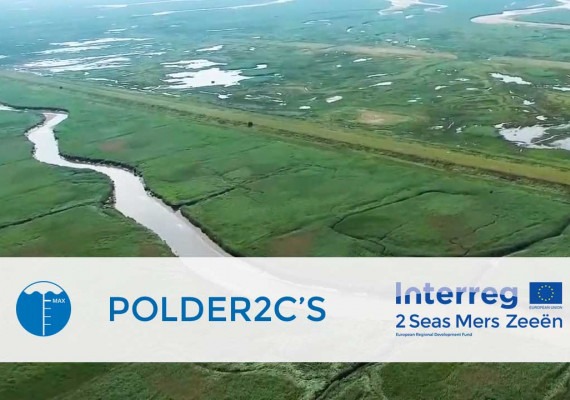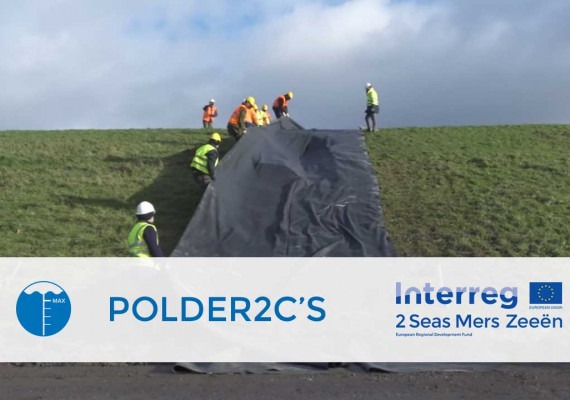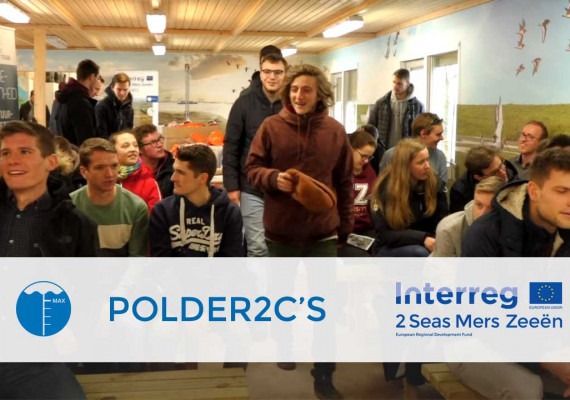Polder2C's
To prepare the 2 Seas Region for the emerging trend in Climate Change
Priority Axis
Adaptation to Climate ChangeSpecific objective
Adaptation to Climate Change
Lead partner
Stichting Toegepast Onderzoek WaterbeheerContact
Begindatum
01/12/2019Einddatum
31/03/2023Project budget
7 755 530 €ERDF amount
4 653 318 €ERDF rate
60%Over
Common challenge
Climate change is impacting the 2 Seas area more rapidly and intensely than anticipated. The common challenge tackled by Polder2C’s project was to proactively prepare all 2 Seas stakeholders to the complexities of climate change. They need to embed the potential impact of flooding in their plans, on a strategic, tactical and operational level. A significant hurdle for them was the lack of precise information on the strength of flood defenses and the practical organization of emergency responses, often relying on theoretical models. Another challenge was to raise awareness among the general public and stakeholders that no guarantee can be given for a full-proof flood defence. Stakeholders in the 2 Seas countries must actively test the viability of current and future proof flood resilience and emergency response approaches in practice.
Overall objective
Main outputs
Cross border approach
Main Achievements
Polder2Cs successfully realised a 4 km Living Lab at an operational levee, where innovative techniques, processes and products were tested.
Series of field experiments such as overflow tests have been performed and multiple emergency response exercises involving partners and observers were conducted. Additionally, innovative repair measures have been tested. Partners’ new insights relevant for climate adaptation have already resulted in scientific articles and presentations accepted (Floodrisk Conference, Amsterdam International Water Week) and proposals to update of the International Levee/Emergency Handbooks.
To share results, the project developed and offered a knowledge platform and expertise exchange. A Data wizard and toolbox are available for project partners and other interested organisations. Inspection instrument App2C has been developed and successfully tested. This has already interested organisations to further develop the app for broader use (amongst professionals/general public).
Successful cooperation between national and regional authorities, universities and business has been established. The partnership brought together military and civil emergency organisations for joint working on emergency response. An Action plan for prolonged collaboration has been prepared and a Memorandum of Understanding on prolonged cooperation was signed by 24 organisations. Partners have created serious interest and commitments to co-operate with organisations outside the 2 Seas area (e.g. Sweden, USA, China and Japan).
The project also contributed to 5 academic curriculae and MSc and PhD students are actively working on subjects concerning levee safety and emergency response. They educated and trained young water professionals by involving them in field experiments and exercises. The Winter and summerschools for young professionals and Levee Challenges achieved remarkable outcomes.
In terms of communication, partners used innovative ways of communicating between them and to external stakeholders. They developed a coherent set of information strategies and tools, with strong emphasis on video conferencing, specific WhatsApp groups and live Q&A sessions from the Living Lab. Partners introduced vlogging as an effective way of communication. This resulted in high-level project visits by the Dutch Delta commissioner and the Minister and Secretary General of the Flemish ministry. The project won Het Zonnetje, an award of the Dutch Delta Programme. Finally, they also experienced high interest and multiple entrances in national newspapers, national broadcasting (television news).
Testimonial

We want to improve our response to high water in cooperation with the army, water boards and citizens. The high water of summer 2021 showed the vulnerability of our system. This is why what we do here is of great significance. We think it’s very important that the new generation is also involved in our research, we want to pass on all the knowledge we gain to the next generation. Together we are in a better position to face extreme weather conditions ad climate change.
Project partner




